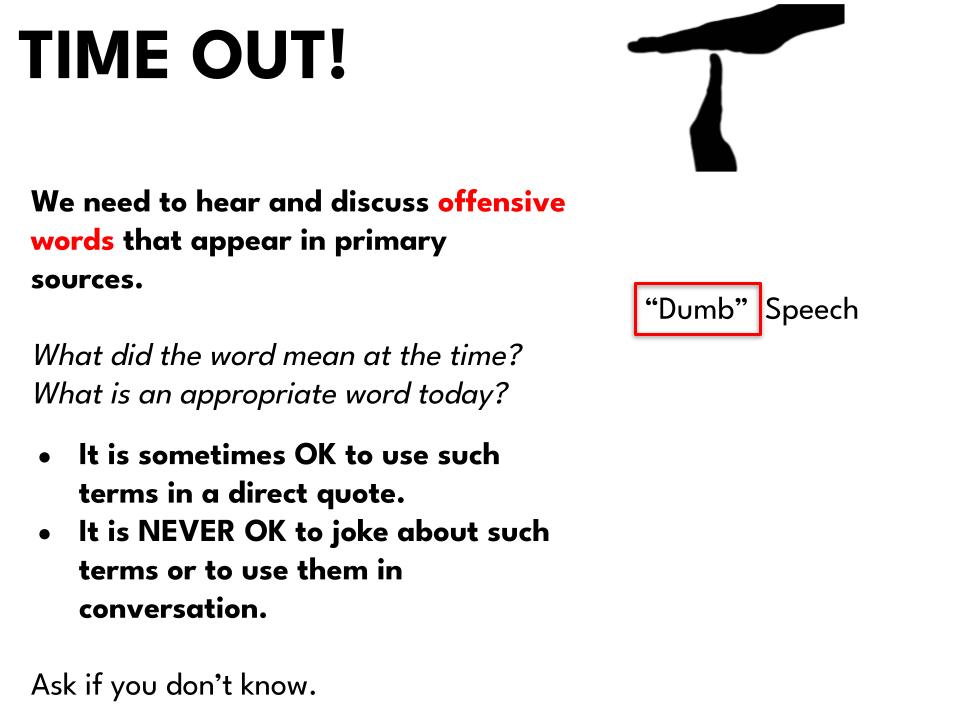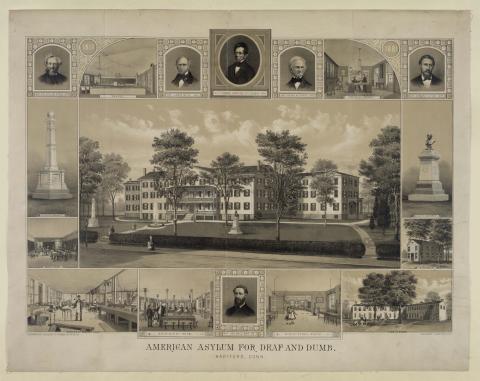
Every unit of the Reform to Equal Rights: K-12 Disability History Curriculum includes an introduction to the topic of disability, including strategies to address disrespectful vocabulary.
There are many words about disability that are offensive in today's usage that are unavoidable in primary sources–even current sources. (Think for example of the term, "dumb," which once meant non-speaking but today only means "stupid.") Thus it is essential to prepare students and to set clear ground rules about how they can respond respectfully when they do encounter such words. Some students may react strongly when they encounter particularly offensive terms and ideas. It is vital to know and support your students. It can be valuable to talk with their families about how to address difficult material. Consider also which terms are age appropriate for your students to read or hear.
Emerging America offers these ground rules:
- It is NEVER OK to joke about disrespectful terms or to use them in conversation.
- It is sometimes OK to use historic terms in a direct quotation. (For example, writing about the American School for the Deaf might require using its original name, "The American Asylum for Deaf and Dumb." See image below.)
It is also important to call at least a brief "Time Out" the first times harmful terms do come up to remind students of the ground rules. (See the slide at right from the Reform to Equal Rights: K-12 Disability History Curriculum.) There does not need to be a discussion each time this happens; teachers do not need to go off-topic.
Draw students' attention to historical context. For example, "asylum" originally implied a refuge from the horrible treatment people with mental were getting in jails and poor houses. Yet some words such as "feeble-minded" were never respectful. Help students to contrast ways language was used in the past, while giving clear guidance about what do do to be respectful today.
It can be difficult to keep up with changes in what language is appropriate. There is not 100% agreement among people with disabilities about how to handle many of these terms, even the word "disability" itself. One good source for teachers is the Disability Language Style Guide from the National Center on Disability and Journalism. (Some students may also find the site useful.) Another is the American Psychological Association Inclusive Language Guide Second Edition (2023).



